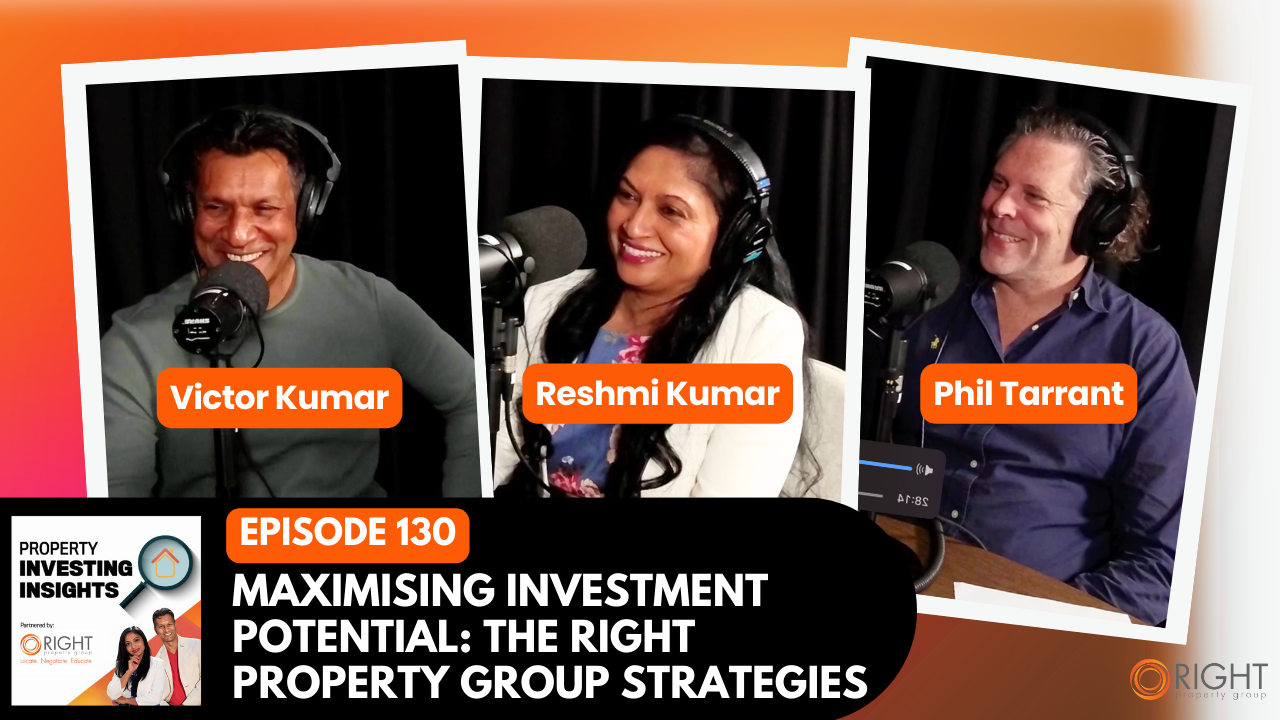Four Investment Mistakes You Don’t Know You’re Making
When you’ve been in the real estate investment game for a while, you’ll hear the same pieces of simplified advice come up time and again. I’m not saying their wrong – clichés tend to be clichés because they’re true, after all. But I do think there’s room to look a bit deeper into the list of often noted mistakes and learn something new.
My research tells me that there are four primary errors investor make that are the wellspring of most failures.
Mistake 1: Poor defence
Some people think I’m overly cautious as an investor, but in reality, I’m just confidently conservative.
Slow and steady wins the race in my opinion, but if you don’t put measures in place to ensure you can stay the course, then you’re bound to make some very poor decisions on the fly.
I wholeheartedly believe the state of your wallet dictates the state of your mind.
When everything is going well and you’ve got a wad of ready cash, it seems great – but as soon as things go sour and money is tight, your mind becomes a lot murkier.
That’s why having ample cash flow and equity buffers in place is essential.
Buffers allow breathing space. They are your safety net against the unexpected. They take care of you and your family when the market can’t.
Budgetary buffers are something you set up as part of your initial reparation for investing – right from the moment a household budget is prepared to what’s available for investing.
When you don’t have ample buffers, it forces you to make rash decisions where you need to sell before.
Mistake 2: Distraction
One of my key mantras for success is, “Stay strong, think long.”
Distracted investors make lousy short-term decisions because they pay attention to the wrong sort of noise and lose sight of their long-term strategy.
Successful investing requires distance vision that keeps you safe from knee-jerk reactions. There’ll be ups and downs, you’ll make a lot of money and then you’ll have to give a little back – if you know without doubt you’re in there for the long-term then the negative noise in not relevant.
If you feel your resolve wavering, the best remedy is going back to your goals to realign your thinking.
Another way to avoid reflex moves is to achieve mini milestones along on the way so you can track and celebrate the successes.
Also, surround yourself with likeminded people so you can hang with, bounce ideas off and lean on them when you need a boost.
Distract yourself with useful information, not useless information.
Mistake 3: Negligence
Some investors believe if you set up your portfolio properly in the first place, it becomes set-and-forget. They ignore their holdings and become comfortable in the idea success will follow without effort.
This is a huge mistake, because those who neglect their investments are doomed to failure.
You might get away with failing to monitor just one holding, but multi-property portfolios demand constant vigilance. Property is not passive.
Simple things like adjusting your rent, checking mortgage rates or even ensuring smoke alarms are compliant – whatever it may be.
Be proactive in your attention, for example, I have alerts set up so that any Development Approvals lodged within one kilometre of my properties will be sent to me as an alert. This means I can monitor what’s happening, spot potential changes to town plans and see where future detrimental surrounding uses (e.g. service stations or light industrial) might be placed. Negligence is death by butter knife for your portfolio – slow and painful.
Mistake 4: Procrastination
Truth be known, I’m the world’s biggest procrastinator… except when it comes to real estate.
It takes me six months to buy a laptop because I need to know all there is, and analysis paralysis follows.
I understand why people get caught in the infinity loop of information when they begin to invest. There’s going to be a huge outlay for a potentially grand upside. You want to know as much as possible before you say ‘yes’.
The problem comes when you can’t move past the starting line and take the big step toward actual ownership.
The solution is to ask yourself, “What is the worst-case scenario and can I live with it?”
If the market drops by 10% – am I’m OK?
What happens if my rates go up or my rent falls.
These problems can all be overcome via strategic planning, and this is what works for me. Once you’ve realised you can cope with a worst possible scenario, you’ll be ready to start the journey.
Also, procrastination is not just about when you should buy, it could be about when you don’t buy too. Sometimes you make more money by doing nothing so you can remain financially fluid and ready to jump when the right time and property come along.
Procrastination is such a slow way to erode any chance of an actual, positive outcome – it’s a debilitating way of thinking.
The best learning comes when you put away the books and get in the game. You always learn the most when you’ve got skin in the game – there’s nothing that focusses your attention better than ‘hurt money’.
Staying self-aware about the mistakes that are damaging your long-term investment plans is essential if you’re looking to succeed in real estate. Take a moment as see if you can spot yourself making one of these four investing errors, and stop them before it’s too late.


